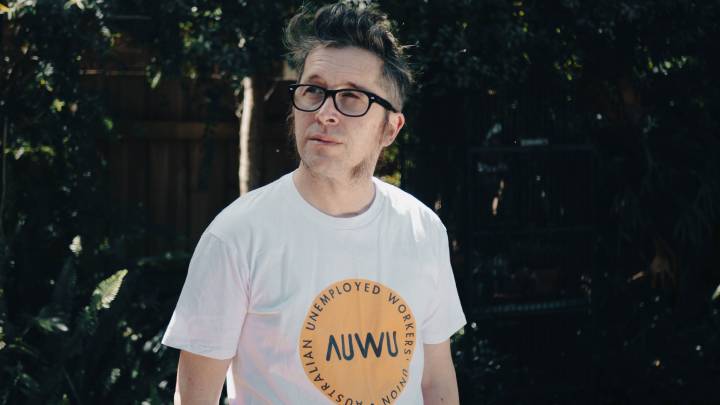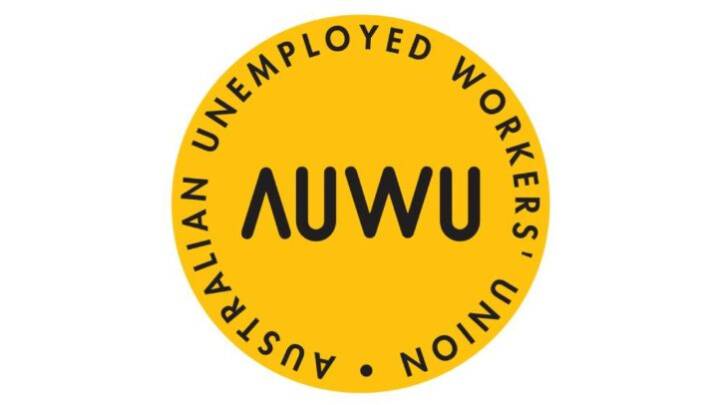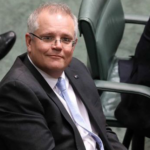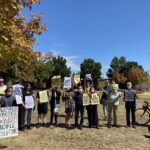“Poverty Is a Political Decision”: AUWU’s Jez Heywood on the Swift Cutting of COVID Payments

One thing has been certain in regard to the Morrison government’s handling of the resurgence of the COVID crisis in the latter half of this year, and that is it didn’t want to come to the table with relief payments to ensure that all of those out of work over lockdown had enough to survive.
In early 2020, almost the entire globe shutdown for the initial pandemic period. And like many other governments across the planet, Canberra rolled out subsidy payments in the form of JobKeeper and JobSeeker.
These were significant, because JobKeeper ensured that employees of businesses that were forced to close continued to pay their employees via the subsidy, which in turn kept the employment relationship afloat.
While JobSeeker provided those on unemployment benefits – with their numbers rising sharply at the onset of the crisis – with a COVID supplement, which brought the rate of the dole above the poverty line for the first time this century.
Those most in need
But things worked differently this year. The government rolled out the first COVID disaster payments in early June. This meant those who lost work due to recent lockdowns could secure a weekly payment and so too, could those on unemployment benefits who also worked part time.
But for people solely surviving on benefits, there was no rise in payment. Indeed, this was after the COVID supplement was cut last March, so once again these people are now surviving on an amount way below the poverty line, with no real chance of securing work during the economic shutdown.
Despite it having cut the rate back to a desperate level earlier this year, the government did raise the payment above the pre-pandemic rate but only by $50 a fortnight.
So, today, the unemployment benefit rate sits at $629.50 a fortnight for a single adult with no children – basically $45 a day, which includes having to pay the rent.
Over and out
As Sydney and Melbourne fast approach an end to lockdowns, it’s estimated that thousands of people who are already struggling to survive on the COVID disaster payment are going to take a greater hit, as the subsidy is set to be swiftly withdrawn.
Treasurer Josh Frydenberg has announced that as soon as the initial lifting of restrictions at the 70 percent vaccination rate occurs, payments will no longer be automatic, while at 80 percent, there will be one more full payment, followed by a half payment the week later, then it will be cut off.
“As restrictions ease, the economy is well positioned to bounce back,” Frydenberg told the press.
However, the AUWU is warning that many left without work during the second extended lockdown are unlikely to simply slip back into work within two weeks of the full lifting of restrictions.

Sydney Criminal Lawyers spoke to Australian Unemployed Workers Union (AUWU) spokesperson Jez Heywood about the likely impact of the sudden cutting off of disaster payments, why they weren’t extended to those on unemployment benefits, and the government’s attitude to those out of work.
Firstly, treasurer Josh Frydenberg announced on 29 September that the COVID disaster payments, which have been supporting people without work during the prolonged lockdown period will soon be cut.
Jez, in your understanding, what sort of impact is this going to have right at the end of the lockdowns?
This will probably push people onto JobSeeker if they have lost work during the lockdowns and it’s permanent.
But the way that these payments were structured, the people that needed them most were excluded from them. It explicitly excluded people on unemployment benefits.
It was a badly thought-out system in the first place. It was conditional on people losing out. And I don’t know that most of the people on the payments are going to immediately get their hours back.
They seem to be thinking that everything will pop back into place just like it was beforehand, and I don’t think that’s going to happen.
As you’ve just hinted, Frydenberg has stated that the economy is likely to “bounce back”, so people without work right now will just fall straight into it. Do you think the government really thinks it will be that simple?
I’d be alarmed if they really thought it was that simple.
So, in your opinion, what’s behind the move?
They want to remove the supports as soon as they can, because, essentially, they really don’t like supporting people on the margins.
It’s an extreme comparison, but I tend to think of it like demobilisation after a war. Following World War Two, it was years before things went back to the way they were.
I know it’s a totally different situation now, but things don’t just go back to how they were.
Last year, all JobSeeker recipients received an extra COVID supplement payment during the initial stage of the public health crisis.
This brought them above the poverty line, and it marked the first raising of the unemployment benefit rate since the early 90s.
Yet, this year, there was only limited assistance given to those on the payment during lockdown. What was with this difference in approach?
I can’t begin to think of why they did this, except for their hating poor people. It makes absolutely no sense.
So, how did the crisis payment work for those on unemployment benefits?
Basically, you had to be in the strange position of someone who was in a precarious job. So, those who didn’t just rely on unemployment benefits.
A lot of people in precarious work have their income propped up by the government. No one can afford to live on just eight hours of work a week, so they also get the support.
But the arrangement this year really did pull the rug out from under a lot of people who rely on government support.
After providing those on unemployment benefits with a liveable weekly amount for about 12 months, this was cut back to the below poverty line. What has this meant for recipients?
It did mean that these people who had lived below the poverty line for so long were suddenly pulled out of it.
The COVID supplement meant that these people were able to eat better and do more with their lives. They no longer had to decide between whether to eat or get medication.
There’s a lot of illness in the unemployed population. A lot of people have medical issues that exclude them from work.
But when the COVID supplement was cut off, a lot of people had to go back to the bad old days, where they had to choose between eating well, leaving their homes or getting medication.

The Coalition government seems to condemn the unemployed for not having a job.
The Turnbull government wanted to commence drug testing the unemployed, while Morrison continues to make divisive remarks about them, like “the best form of welfare is a job”.
How would you say the Liberal Nationals coalition deals with the unemployed?
When they’re not absolutely ignoring the unemployed, they’re blaming them for their own situation, which is blatantly false. Poverty is a political decision.
It was shown last year that the government could click its fingers and raise people out of poverty. This was significant, especially as the prime minister sees unemployment as a personal failing of people.
Also, I can’t ignore the silence from the Labor on the issue. They’ve been asked on numerous occasions to come out with a statement on what they will do about the unemployed and the silence from them has been deafening.
The two major parties are both terrible on issues relating to the unemployed.
And lastly, Jez, rather than cutting back the COVID disaster support and then leaving things as they are at a time when the number of people claiming JobSeeker looks likely to rise, what should be happening here?
Essentially, the government should return the COVID supplement, bring everybody above the poverty line and leave it like that.
We have one of the worst income support rates in the OECD, and again, the government has shown just how easy it is to raise people out of poverty.
Rather than ridiculous roller coasters with submarines, there’s a lot of good that could be done with that money. And the government’s forecast of how much JobKeeper would cost was out from the start.
They’re happy to let big businesses, like Harvey Norman, take all that money and not pay it back. But they will penalise and raise debts for unemployed people as soon as they even look at a few extra dollars.
So, let’s get our priorities a bit more in line with what people in this country actually need.







